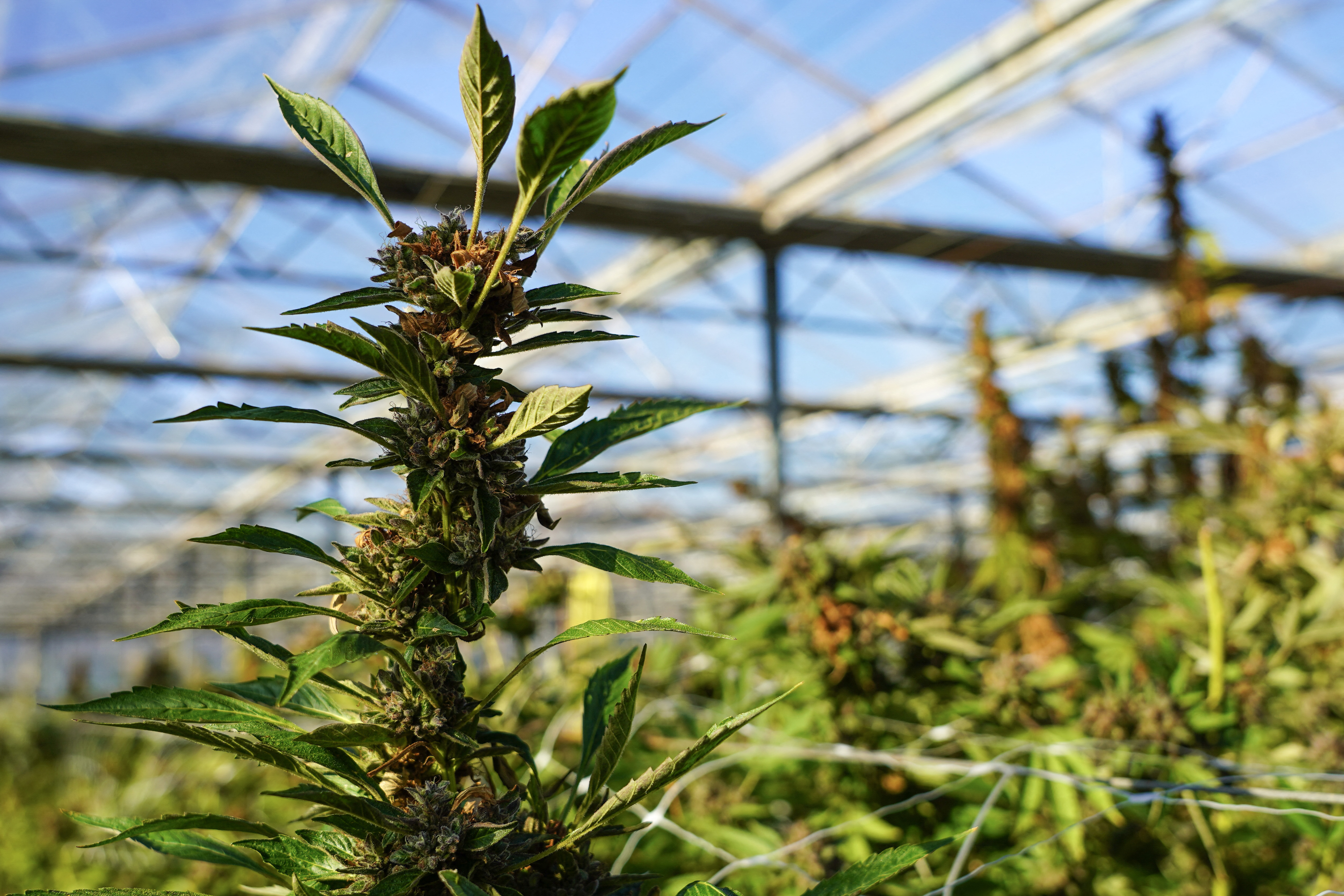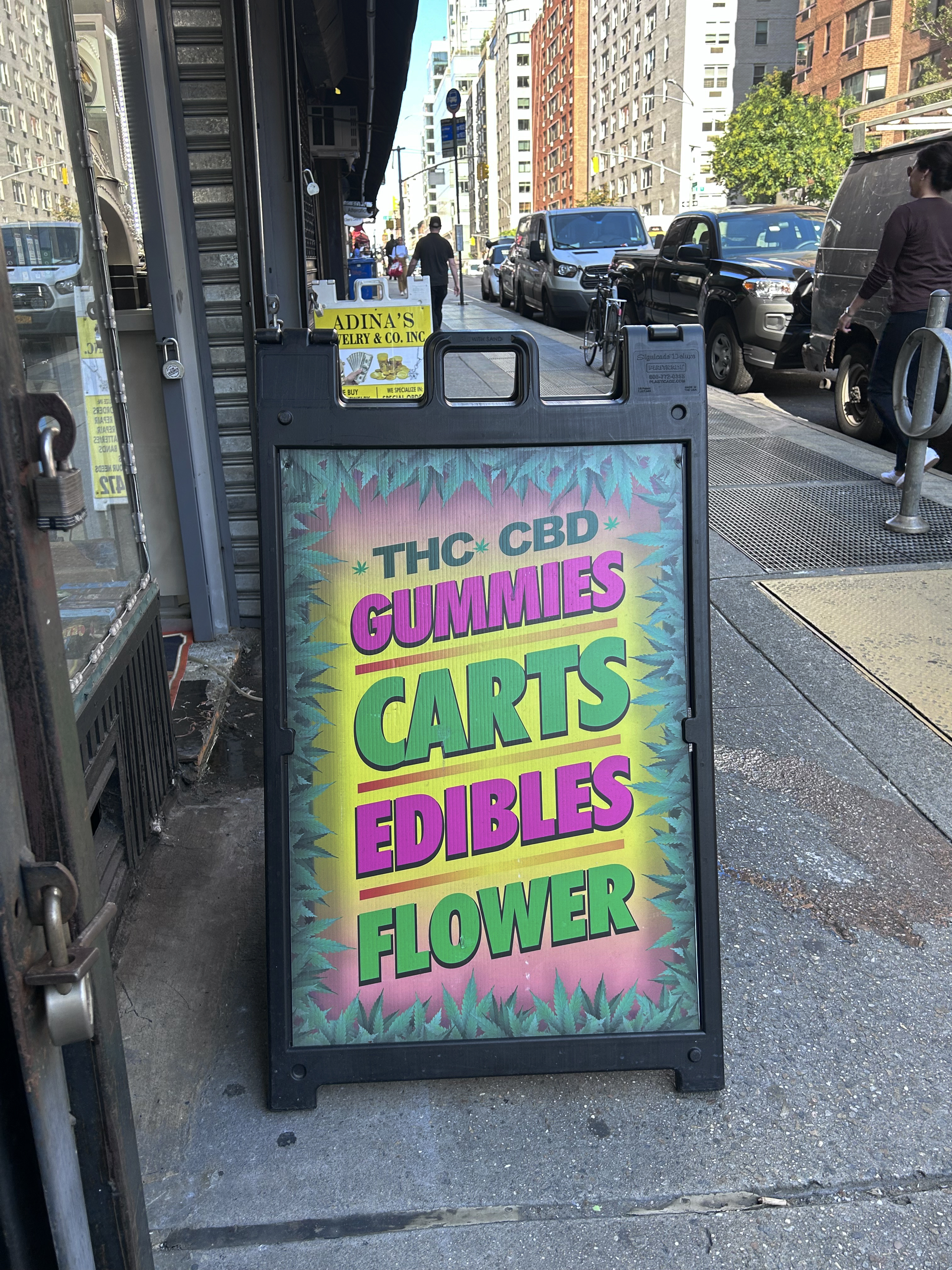Marijuana retailers in Connecticut say a dearth of licensed growers in the state’s fledgling legal pot industry has left them with a shortage of product to sell.
The supply problem has appeared after slow retail growth in neighboring New York last year left growers there struggling with the opposite: an excess of supply.
It would seem both problems could easily be solved by shipping product a few miles over state lines. But that would violate federal drug laws. So each state that legalizes marijuana is left with its own process for licensing growers and sellers, and trying to create a balance between the two within state borders.
Benjamin Zachs, the chief operating officer of Fine Fettle, which operates five dispensaries in Connecticut, said he worries that low supply in stores is leading some customers back to their former, illegal dealers, and across state lines where he cannot go to get product.
When recreational sales became legal in Connecticut in January 2023, he said, there were seven dispensaries in the state and four producers.
Get Tri-state area news delivered to your inbox. Sign up for NBC New York's News Headlines newsletter.
“Now we're a year later and there are 26 open dispensaries and only one more producer, grower, cultivator,” Zachs said. “And that's a micro-cultivator, so that's only about 5,000 square feet of additional canopy.”
The Connecticut Department of Consumer Protection, which regulates the industry, said it appears there is a temporary problem as new licenses for growers make their way through the pipeline. Eleven cultivators and five microcultivators, who grow in smaller spaces, have received a provisional license and are moving toward final licensure, the department said.
“As a new agricultural industry, there are natural fluctuations in supply and demand,” said Kaitlyn Krasselt, a department spokesperson. “The limited variety was exacerbated by increased demand over the holiday season, from Thanksgiving to New Year’s. Retailers experienced heavy traffic in relation to the holidays, and the record sales in our December data supports that.”
New York, meanwhile, is emerging from the exact opposite problem it faced while gearing up its legal cannabis market.
Lawsuits and bureaucratic issues slowed the opening of state-licensed dispensaries to a crawl last year. That left the first wave of pot farmers unable to sell much of their fall 2022 harvests because there were too few stores to sell what they grew. With revenue from sales crimped, farmers struggled financially.
New York belatedly hastened the pace of retail openings, and the state listed 61 adult-use dispensaries open statewide Monday. Farmers say the crisis has eased some.
“In the last month it is better because more dispensaries are opening. So we’re beginning to see some momentum to relieve what has been extraordinarily painful,” said Gail Hepworth, who operates Hepworth Farms with her sister in the Hudson Valley.
A check of stores in New York and Connecticut this week found similar pricing, with 3.5 grams of flower selling in each state for between $50 and $75.
Still, the irony of two very different supply chain problems striking adjacent states is not lost on farmers.
“It’s just so unlike any other market, right? Because it has to all be siloed within one state,” said Brittany Carbone, co-founder of Tricolla Farms and a board member of the Cannabis Association of New York.
Retailers are wary that the expected increase in supply doesn't lead to a glut in Connecticut, as it did just across the border, Zachs said.
“To me, while this is frustrating and annoying and difficult to address, this is a problem that is not unexpected,” he said. “What generally happens in states is that at first there is not enough supply, and then there is an oversupply, and that creates a total mess.”
Still, he's wary of any push for a national law and standard, which he fears would lead to large corporations taking over the industry from smaller farms.
“States are rightfully focusing on entrepreneurs in areas impacted by the war on drugs — Black and brown communities,” he said. “Even the largest cannabis growers right now are startups, I would argue. And the story of the regular American family farm is a cautionary one, I would argue, when we look at solutions to this.”




